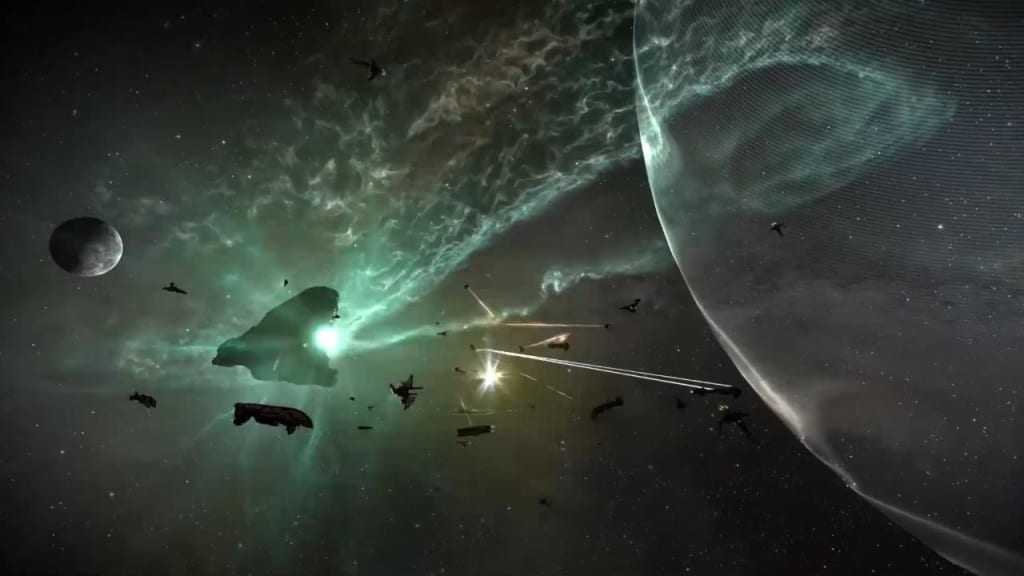
The Three-Body Problem is one of the most wonderful novels I've read recently. Although I can't fully understand and understand a lot of physics principles, it is quite excellent in terms of structure and plot. The plot development is unexpected, and there are many places worth exploring and recalling. The power of love? In Harry Potter, the invincible Lord Voldemort is defeated because he knows nothing about love. The book's motto is that love is the greatest power. Of course, Rowling is no virgin of love, the book is deeply realistic and the characters are not stereotyped as good guys and bad guys. However, in the Three-Body Problem, Cheng Xin is a loving person who, with noble motives, strives for a better human being, but twice pushes human civilization to a place of no return, eventually leading to the destruction of the earth. But the real ability and in the right way to save the earth vader, but again and again in the hands of Cheng Xin, let people think, in the moment of life and death, is it rational action or love can save the earth? In the three fairy tales that Yuntianming takes the adventure to let Cheng Xin bring back, what can truly save the earth is the speed of light spaceship, but this requires human society to make a huge sacrifice, involving the right to survival, social class and all kinds of complex moral ethics. Is it to preserve the civilization of the earth at the expense of the majority of people's right to exist, or rather to die together? Cheng Xin became the sword bearer because of democratic vote. As it turned out, she was not a proper sword-bearer. Vader was better. Democracy is often inefficient and irrational at such critical moments. Should the fate of humanity be left to democracy or to a few? Why should a few decide the fate of all mankind? Again, it's worth arguing about. The paradox is that if human society were to move towards absolute sanity, it would indeed be able to overcome technological difficulties and perhaps avoid extinction. But is the human civilization that has survived the world of love that we expected, or has it gone dark? "Give time to life, give years to civilization." The four wallbreakers are the best of the best, each with a clear vision of the true future, the inevitability of failure, and all plans are built on that foundation. The first three failed, and their plans were widely despised; Luo Ji's successful plan was actually based on the top three. In terms of story, the Three-Body Problem 2 is arguably the best. While the First film begins with a somewhat dry depiction of the Cultural Revolution, the third film hints at fantasy rather than science fiction. Zhang Beihai was the fifth person to face the wall. His great skill lies in deceiving not only tomoko/Trisaran world, but also the entire human society; Not only did it keep earth technology moving in the right direction, but it also kept us alive for thousands of years. A lot could be rewritten if he had the resources to face the Wall. "Weakness and ignorance are not obstacles to survival, arrogance is." Strictly speaking, the book is a history of the universe without leading characters. The reason why Luo Ji and Cheng Xin use more ink is that the author wants to observe the rise and fall of the earth from their perspectives, and they play a significant role in several key turning points of the earth. Many supporting characters, such as Yun Tianming, Wei De and Zhang Beihai, left a deep impression on readers. They are all doing their best to save civilization on Earth, using different methods and with different results. The question is, what is right and what is wrong? Who can make such a judgment? Zhang Beihai murders five people in order to make mankind develop in the right direction. After lifting hibernation, he directly hijacked the spaceship, which can be said to be a betrayal of the entire human society, but his efforts enabled the continuation of human civilization. Is this true or false? Of course, his move was a risky one, and the last two ships would have been doomed had he not stumbled into the fourth dimension. Zhang beihai said, "As soldiers, do you know what is the biggest difference between us? You decide on your actions based on possible outcomes; And we had to do our duty, regardless of the outcome. That was the only hope, so I did it." Vader murders Vadim in order for the Ladder project to proceed smoothly; He knew he was the right sword bearer and attempted to murder Cheng Xin; In order to build the speed of light spaceship, not hesitate to fight against the entire human society... And his real motive and all efforts, are to change the fate of human destruction, he led the development of the speed of light spacecraft has become the cornerstone of the continuation of human civilization. Is that right or wrong? "Space is like a magnifying glass, which can magnify the dark side of humanity to its maximum in an instant. When humans are in space, totalitarianism takes five minutes." Yuntianming is less skeptical. The three-body body does not support useless people, he can survive there and get a higher status, must give them a lot of advice, even the three body's several important attacks on the earth, may be from the plan of Yuntianming. But this is for his own survival, and he also tries to get Cheng Xin to bring back three precious stories that show the way out for humanity. "Humans are used to seeing black and white in everything, but unfortunately reality is grey." 4. Childish and genius, the accidental and inevitable Wall plan and the ladder Plan have all come under great attack as extremely childish decisions made in a time of extreme panic in human society. As a matter of fact, the plan of facing the wall threatened the three-body world and won precious time for human society to breathe and develop. The Ladder project offered the only hope of saving human society, though the Last hope had been destroyed by the Virgin. As plans go, these two plans are really pretty weak and can't stand much scrutiny, but they turned out to be a huge game-changer. So how to judge these two plans? Naive or genius? Can a few individuals change the course of civilization on Earth? Is it cheng Xin's irrationality and the flood of love that destroyed the earth civilization, or the joint efforts of the whole human society that led to the destruction of the earth civilization? Is it accidental or inevitable? "By choosing you, the human world has chosen to treat life and everything with love, though at a great cost. You fulfill the aspirations of that world, you fulfill the values of that world, you fulfill their choices, and you really are not wrong." The reason why human beings have not been able to see through the dark forest of the universe is not because of the lack of cosmic consciousness due to the immature evolution of civilization. Although cheng Xin was naively chosen as the bearer of the sword, cheng Xin was not wrong, and neither was mankind. The value of being a civilization on earth is to treat life and everything with love. So it's the values of earth civilization that are wrong? Chose love over reason, so the demise of civilization on Earth is inevitable? This is an important lesson of the MBA. It used to be the law of the jungle. The strongest would survive. However, as modern society changes, it is replaced by the law of the rainforest, that is, in a society, who can coordinate and use the most resources, who can establish the most cooperative relations with others, who is the most powerful. On this basis, a series of disciplines have been developed, such as communication, influence, leadership, negotiation and so on. Originally, I accept this view, but the three-body dark forest law and chain of suspicion makes people deeply see, from the perspective of the universe, is still the law of the jungle. Weak civilizations, once discovered, would be dealt a fatal blow rather than friendly communication. Higher civilization casually casually throw a piece of paper, weak civilization on everything. "Survival is the first necessity of civilization." However, this point is against our morality. In our values, many things are higher than survival, such as faith, freedom, love... To return to the question at the beginning, if we accept the dark Forest law with survival as our first need, is this still the civilization we know on Earth? In terms of time, in the long river of history, everything is dust; Spatially speaking, in the universe, the earth is not even dust. This is just two dimensions, and if I zoom in to twelve dimensions, forgive me if I can't imagine what a brilliant world it would be. If you look at it in the long sweep of history, from the cosmic point of view, it makes no sense. Perhaps this is where nihilism and hedonism come in. "That night when the lighthouse was built, as I watched it glow from a distance at sea, it suddenly dawned on me that death is the only lighthouse that always lights. Wherever you sail, you must eventually turn to the direction it leads. Everything dies, and only death lives.





Comments
There are no comments for this story
Be the first to respond and start the conversation.